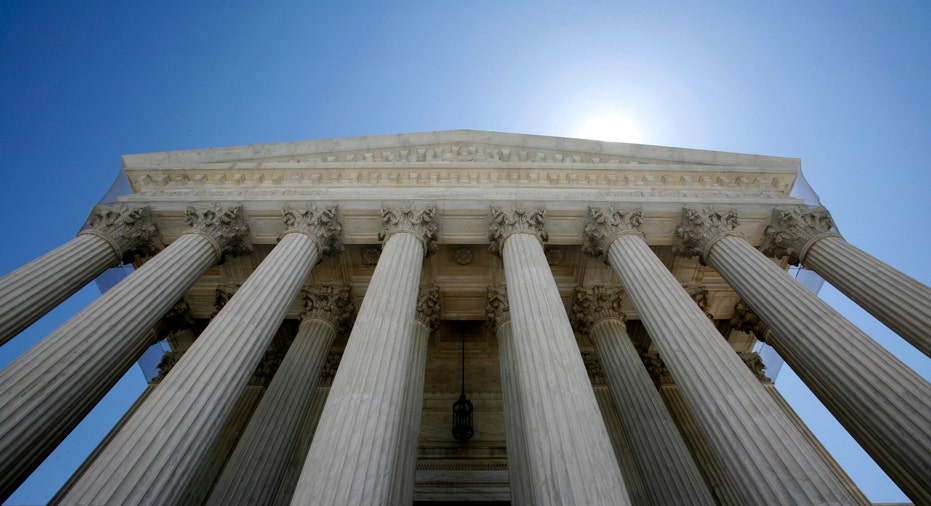Small Biz vs. ObamaCare One Step Closer to Supreme Court

Small business owners from six states continued their ObamaCare fight against Uncle Sam Tuesday at the D.C. Circuit U.S. Court of Appeals, after their case was struck down in early January.
The plaintiffs argue that because they live in states that opted not to set up health-care exchanges, they (and all state residents) should not be subject to penalties under the Affordable Care Act’s individual and employer mandate.
If the plaintiffs were to win, the federal subsidy system stands a chance at being invalidated, thus leading to more mass confusion for those who are currently enrolled in plans with these premium tax credits.
“We are really optimistic, and a lot is hinging on this because even without ObamaCare, right now between 80 and 90% of new businesses fail. When you add additional new costs, taxes and penalties to new employers, that rate goes up even higher,” said plaintiff J. Allen Tharp, CEO of a chain of pubs in San Antonio, Texas called Olde England’s Lion and Rose LTD. “You would think that is the opposite of what the government would want to do.”
The original case was filed in May 2013, alleging that the IRS wrongfully expanded the mandate penalties to include residents in states that operate on the federal exchange, Healthcare.gov, and acted without Congressional approval. The appeals hearing was expedited and a decision is expected in several months, according to Sam Kazman, general counsel for the Competitive Enterprise Institute, which is organizing and funding the suit.
Today’s hearing brings the case one step closer to the Supreme Court, according to Kazman, as neither side is likely to bow out.
“It was a pretty energetic argument,” Kazman said of today’s hearing. “Each side got a half hour, which was three times as much time as the two cases before us got. The judges generally knew a huge amount of statutory background, and were very well-versed in the issues.”
One of the judges and the plaintiff’s attorney, Mike Carvin of Jones Day, got into a heated exchange over whether the suit is an attempt to undermine the individual mandate, which requires every individual in the country to have insurance by the end of open enrollment period on March 31, or face a fine of $95 a year or 1% of their annual income.
“That is ascribing a political purpose to a case that goes beyond the question of who is right and who is wrong,” Kazman says.
The lawsuit also claims businesses in the six states should not be subject to the employer mandate penalty under the law, in which every business with at least 50 or more full-time workers is required to offer them coverage or face a fine of $2,000 per worker, per year (the first 30 full-time employees are exempt). This kicks in beginning in 2015, however, businesses with between 50 and 99 full-time workers have until 2016 to comply under the latest delay in early February.
HHS pointed FOXBusiness.com to the Treasury Department for comment, and the Treasury Department deferred to the IRS, which declined to comment on pending litigation.
Tharp currently has 1,100 employees and offers health-care for some, but has been forced to scale back hours for many workers due to the law, he says. Bottom line, he says states without exchanges should not subject residents to mandate penalties, and that the IRS acted as a lawmaking body, which it is not.
“We certainly won’t give up,” he says. “We think we have a good chance of winning at this level, but if not, hopefully we can win at the next level.”



















